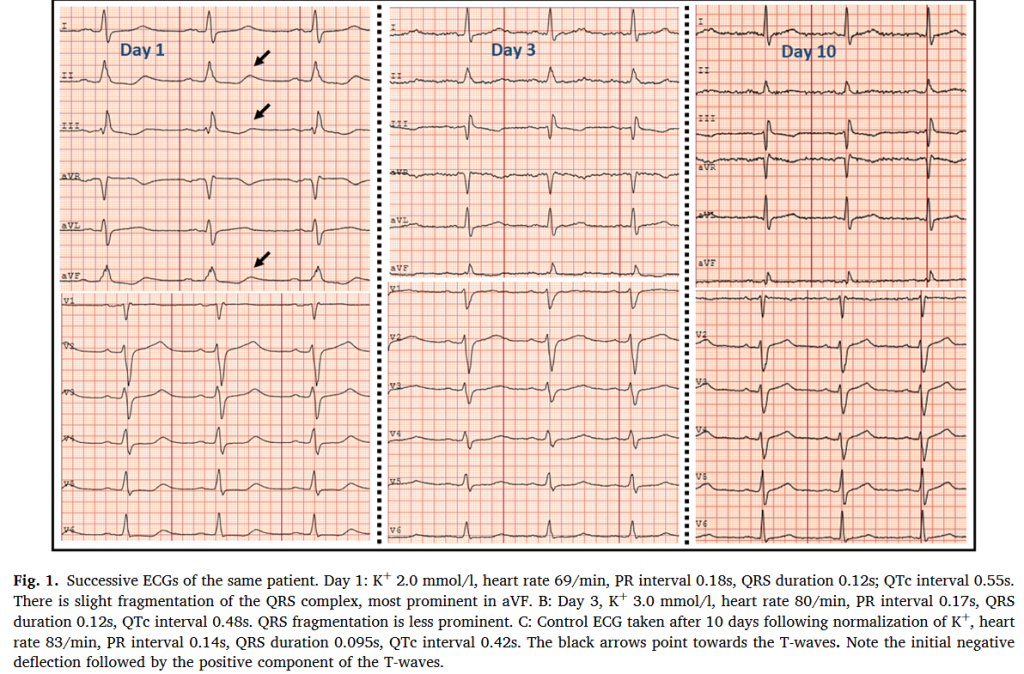The Bottom Line: “Although the ECG findings are more subtle in the case of hypokalemia compared to hyperkalemia, it is important that clinicians are alert to these. ECG changes in hypokalemia include increased amplitude of P-waves, prolonged PR interval, prolonged QT-interval, ST-segment depression and appearance of pathologic U-waves or bifid T-waves. The understanding of ECG changes in electrolyte disturbances is important both in the diagnosis and implementation of timely and appropriate treatment to these patients.” (Khan)

